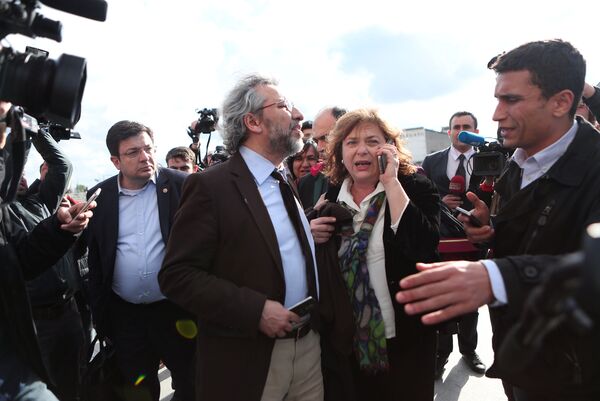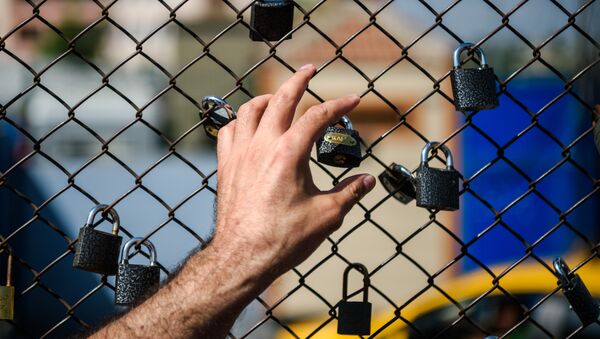As the smoke settled across Turkey in July, President Erdogan's fury at almost being shunted from office by the country's military was made clear to all. In the subsequent months, 13,000 police officers have been suspended; 149 senior commanders, including 87 army generals, 30 Air Force generals and 32 admirals, have been dismissed; and 35% of fighter-bomber pilots have been arrested.
Turkey's own Justice Minister Bekir Bozdag recently estimated that more than 26,000 people have been detained in connection with the bloody coup bid, including journalists. For many of them, conditions are dire.
Coup attempt can't be used to silence dissent — @KatiPiri & @knufleckenstein on situation for journalists in #Turkey https://t.co/2AUeHycHim
— S&D Group (@TheProgressives) October 26, 2016
Human rights organization Amnesty International, says it has "credible evidence" that Turkish police are denying detainees food, water and medical treatment, and in some worst cases subjecting them to severe beatings and torture.
#Turkey: Evidence of torture including rape & other abuse of detainees. https://t.co/aelZgAwQbe pic.twitter.com/Rr40pF84wB
— AmnestyInternational (@amnesty) July 25, 2016
On Wednesday (October 26), members of the European Parliament in Brussels insisted that Turkey halt its purges.
German MEP and Vice-President of the European Parliament for Human Rights and Democracy, Alexander Lambsdorff, said:
"The rule of law, press freedom and freedom of expression are core values. Therefore, we call on the Turkish authorities to release all journalists detained on the basis of unsubstantiated charges.
"The failed military take-over cannot be used as an excuse for the Turkish government to prevent journalists and the media from exercising their right to freedom of expression."

Turkey and the EU are still floundering in a decade-long bid by Turkey to gain European Union membership. Several EU country's have expressed misgivings about Turkey entering the EU, over human rights and economic concerns. Austrian Chancellor Christian Kern, has described the faltering negotiations as "economic fiction," labeling Turkey "undemocratic."
In August, just one month after the Turkish coup attempt, Chancellor Kern said:
"We know that the democratic standards are clearly not sufficient to justify Turkey's accession.
"The economic question is at least just as significant because the Turkish economy is too far from the European average."
Wednesday's European Parliamentary scolding of Turkey also included several references to how at odds Turkey's current behavior is with the ideals of the European Union.
"The rule of law in Turkey must be upheld and the principles of the European Convention of Human Rights fully respected. Turkey remains an important partner for the EU. In light of its EU accession talks we urge Turkey to respect the principles the country has committed to," German MEP Knut Fleckenstein said.
Our members stand with the 130 journalist in #Turkey who are in jail. Democracy cannot exist without a free press! pic.twitter.com/Z98HRnzZpE
— S&D Group (@TheProgressives) October 26, 2016
European Parliament rapporteur on Turkey Kati Piri added:
"We fully acknowledge the legitimate right of the Turkish government to investigate the heinous coup attempt on the 15 July, but at the same time we strongly condemn the massive crackdown on journalists, writers and academics — without any proof that they have been involved in any criminal activity."
Following the arrests of elected politicians in Turkey @KatiPiri urges the government to release them and the 130 imprisoned journalists pic.twitter.com/6PGGzZU6uy
— PvdA Europa (@pvdaeuropa) October 27, 2016
President Erdogan has not taken kindly to attempts by international leaders to curb his domestic policies in the past. The growing acrimony between EU members and Turkey puts the current EU-Turkey migrant deal into doubt.
During the actual, short-lived coup attempt, hundreds of lives were lost and thousands wounded in the carnage. Yet it's clear, the fall out is still ongoing.


